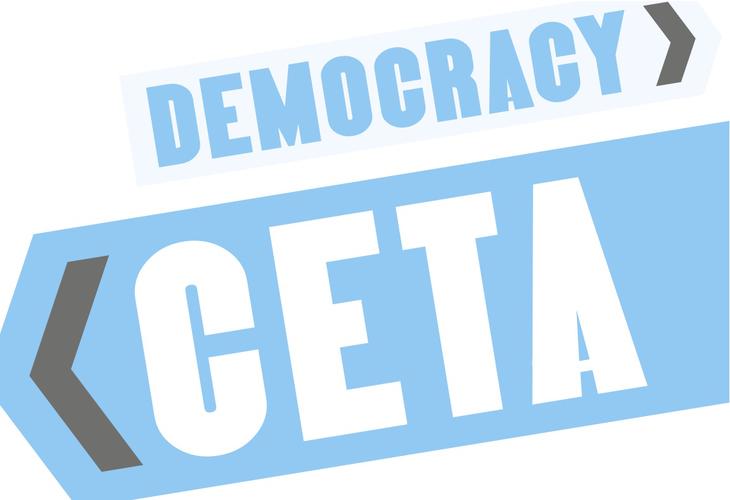‘Strange’ manoeuvering over CETA exposes democratic deficit

EurActiv | 14 October 2016
‘Strange’ manoeuvering over CETA exposes democratic deficit
By Aline Robert
French lawmakers are continuing their battle against the EU’s free trade deal with Canada (CETA). The arrest of Green MEP José Bové by the Canadian authorities yesterday (12 October) has only deepened concerns over the deal. EurActiv France reports.
As French Prime Minister Manuel Valls heads to Canada this weekend to discuss the countries’ trade relations, opposition to the free trade agreement negotiated by the EU is as firm as ever.
CETA’s opponents have been angered by the possibility that the treaty could come into force as soon as it is signed, before being officially ratified by the EU’s national and regional parliaments. This, they say, undermines democracy.
The French government ignored an open letter signed by 100 MPs, in which they called for the application of the deal to be delayed. This disregard was keenly felt. Members from both sides of the National Assembly have mocked the government over its position on the matter, as this text circulated among MPs shows.
The text dismantles one by one the arguments put forward by the French trade ministry, concerning everything from Investor-State Dispute Settlement (ISDS) to the environment and respect for democracy.
Forced resignations
In its latest controversy, the government coerced the French parliament’s centre-left Social Democratic group into blocking a resolution on delaying the trade deal. According to Politis.fr, the group “resigned” four members of the European affairs committee on 5 October, the day of the vote on the resolution, only to reinstate them the next day. Such behaviour is hardly democratic.
After a strong mobilisation by the pro-CETA MPs, the resolution was rejected by 12 votes to three.
“Strange things are happening, but we will keep going, we must not give up,” Danielle Auroi, the president of the National Assembly’s European affairs committee, said at a packed debate on CETA on Wednesday (12 October).
According to EurActiv’s sources, this attempt to rig the committee vote was orchestrated by the prime minister, after a warning by Minister of State for Foreign Trade Matthias Fekl.
Jean-Marc Ayrault, France’s minister for foreign affairs, has since decried this antidemocratic practice, betraying his disapproval for some of the decisions taken by his junior minister. Fekl is a die-hard supporter of CETA, but a vocal critic of the EU-US free trade deal TTIP. This is a delicate position to be in.
“The parliament legislates, but it also controls public policy. But we do not have much of a handle on these agreements. This debate needs to be brought into the open,” said Guillaume Chevrollier, a Republican MP.
The debate was started by Green MP Brigitte Allain, who argued that “the provisional application of the free trade agreement short-circuits the parliamentary debate”. Fears over the consequences of this agreement for agriculture have never been properly addressed, according to farmers.
“This treaty is the basis for a beef-milk exchange: the Canadians will be able to sell their beef in Europe, the Europeans their milk in Canada. I do not see what we gain by exchanging these basic foods from one end of the planet to the other,” said Dominique Potier, a Socialist MP.
European Parliament as referee
French lawmakers hope to influence the debate in the European Parliament, where the revolt against CETA has also taken root, particularly within the Socialists & Democrats group.
At a debate in the European Parliament on Thursday, several MEPs argued that the agreement should not enter into force without their being consulted, a move that would delay the agreement: the committee on international trade is due to make its decision in December, ahead of a plenary vote in 2017.
Yesterday’s arrest and threatened deportation of José Bové by Canada will provide yet more ammunition for those that argue the trade treaty is undemocratic. The Green MEP was arrested by the Canadian government on the pretext of his past convictions over GMOs. He was then released with a temporary visa for seven days.





